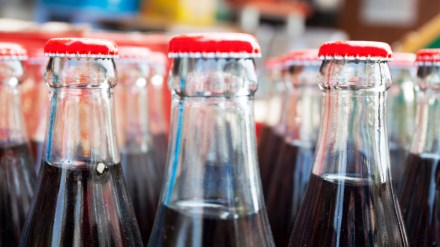Finance Minister Nirmala Sitharaman has announced big changes in the Goods and Services Tax (GST) system. The GST 2.0 will follow a simpler two-slab structure and kick-in several tax changes starting from September 22 this year. As part of the new GST ate structure, a high tax slab of 40% has been introduced for luxury items and sin goods.
Items that will become costlier
- The 40% bracket will include all types of aerated water, carbonated and caffeinated drinks, and other non-alcoholic beverages.
- A 40% tax will apply to cars with engines over 1,200cc and longer than 4,000 mm, motorcycles above 350cc
- Yachts used for personal use use, aircraft, and racing cars will also be taxed at 40%
- Sin goods pan masala, cigarettes, and other tobacco products will be taxed at 40% GST, but not as of now as this comes with a condition. Let’s find out:
Tobacco and related products to remain under current GST rates until loans are paid
Sin goods will keep the current GST rates and compensation cess until all loans and interest linked to the cess are fully repaid. After the repayment, the Union Finance Minister, who also chairs the GST Council, will decide the exact date when tobacco-related products will shift to the new tax rate.
Tobacco and related products will continue under the old system with the additional cess. This will remain in place until the government fully repays the loans taken during the pandemic to cover state revenue losses, Finance Minister Nirmala Sitharaman clarified on Wednesday.
Items such as pan masala, gutkha, cigarettes, chewing tobacco, zarda, raw tobacco, and bidis will stay under the current GST rates and compensation cess until both the loan and interest are cleared.
The Centre in 2021-22 had borrowed Rs 1.1 lakh crore, and in 2021-22 it borrowed another Rs 1.59 lakh crore as back-to-back loans to cover the shortfall in cess collections.
According to the Union Budget 2025-26, the government plans to collect Rs 1.67 lakh crore from compensation cess this year, of which Rs 67,500 crore will go towards repaying these loans.
Earlier, Rs 78,104 crore was repaid in 2023-24, and Rs 1.24 lakh crore in 2024-25, as shown in the Budget documents.
Once these repayments are completed, the cess will be removed. Products that earlier attracted compensation cess will then fall under a special 40% GST rate.
Although no exact timeline was given, Sitharaman indicated the repayments are likely to be finished within this calendar year. The GST Council has also allowed her to stop cess collection immediately after the loans are settled.
